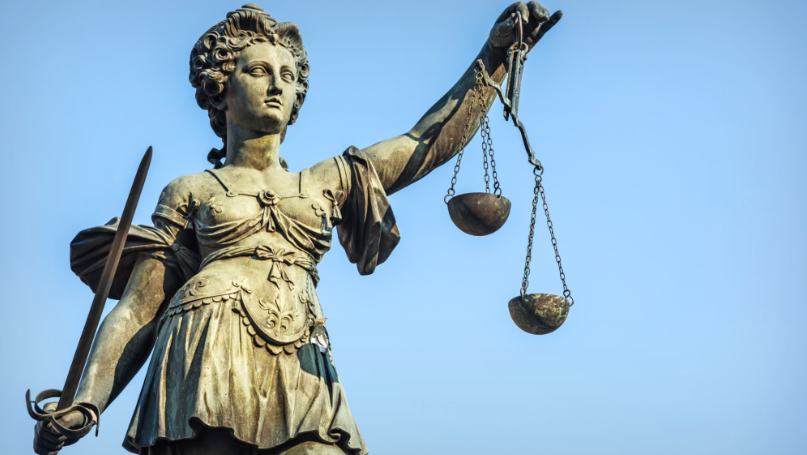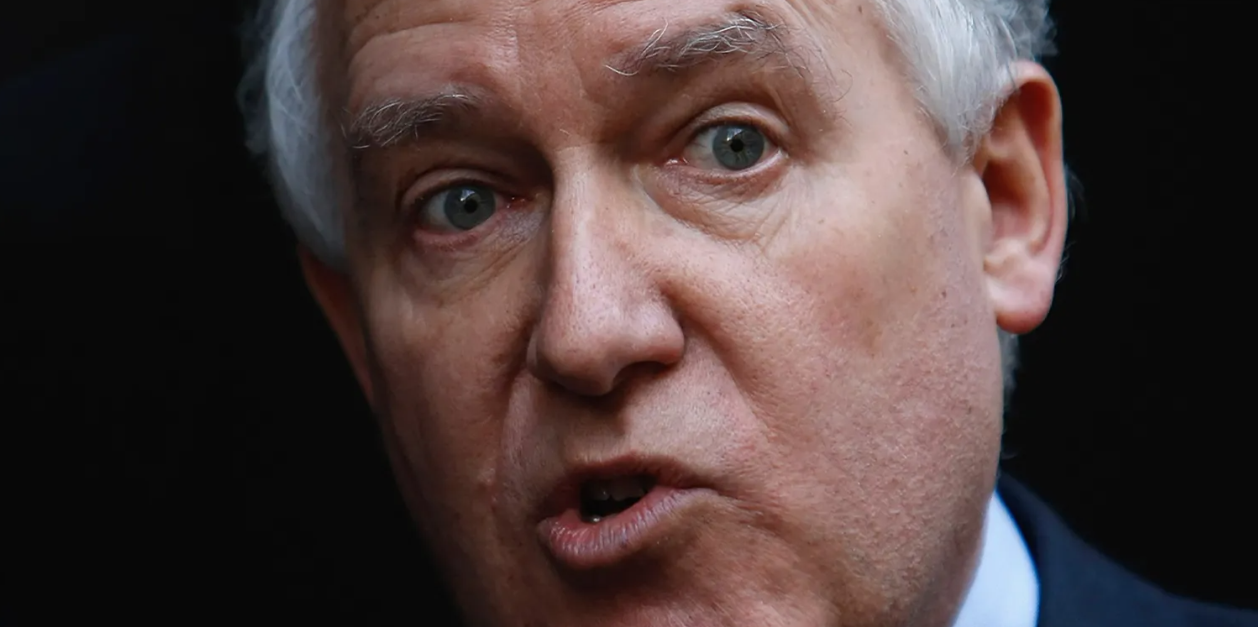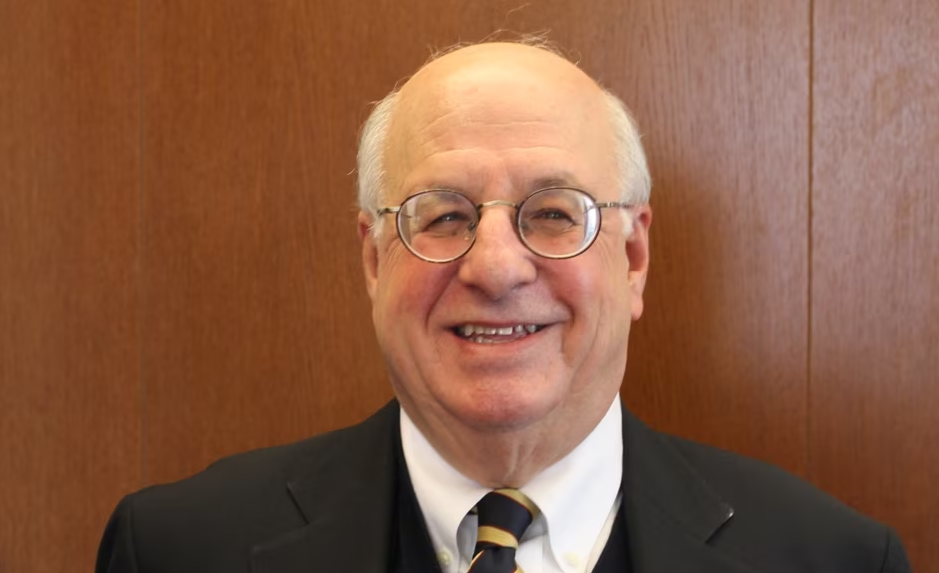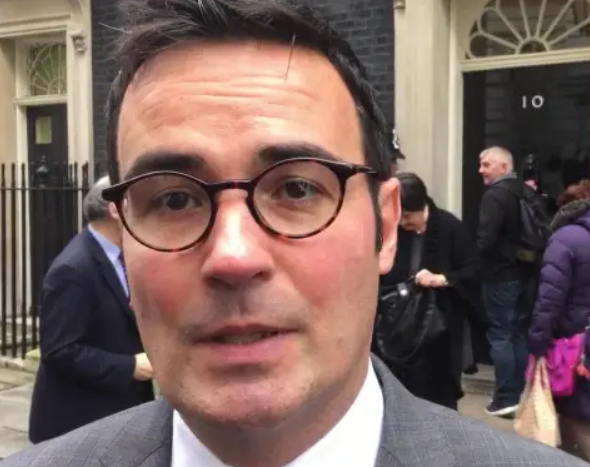An international court with teeth needed to combat global scourge of grand corruption
By Justice Richard Goldstone, Paul Hoffman, and Ian Lynch
(April 2024)
The world urgently needs an international anti-corruption court
7 FEBRUARY 2024 By Prosper S Maguchu
SA should lead global campaign to establish International Anti-Corruption Court — Peter Hain
South Africa should take the lead in establishing an International Anti-Corruption Court (IACC) to bring not only public officials but also those who pay bribes and those who launder stolen funds to book, British Lord Peter Hain said in a lecture at the University of Cape Town last week.
“The IACC will prosecute not only corrupt public officials, but also those who pay the bribes and those who launder the stolen funds – bankers, lawyers, accountants, real estate agents and other financial service providers – many of whom are based in the financial centres of the Global North,” he added.
Hain noted that more than a year ago, President Cyril Ramaphosa had promised, in response to the findings of the Zondo Commission, that “there will be no place for corrupt people, for criminal networks, for perpetrators of State Capture to hide”.
“Yet, numerous individuals responsible for various aspects of State Capture continue to sit at senior levels in Ramaphosa’s ANC, including in his Cabinet,” Hain remarked.
“Corruption continues at every level of government in South Africa. There is an absence of political will and insufficient resources for public agencies investigating suspicious procurement practices.”
(January 2024)
Peter Hain: Bring looters to justice with an International Anti-Corruption Court
25th January 2024 by Chris Steyn
‘Whitey’ Bulger Judge Needed Security After ‘Perceived Threat’ From the FBI
The judge who exposed the “Whitey” Bulger scandal has told The Daily Beast that a “perceived threat” from the FBI against his family during the high-profile case has helped to spur on his campaign to create an International Anti-Corruption Court.
Senior District Court Judge Mark L. Wolf said he never felt threatened in years on the bench—despite handling numerous organized crime cases—until he was on the verge of exposing corruption inside the FBI.
Wolf, who once led the public corruption unit inside Boston’s U.S. attorney’s office, has been exposing corruption in the U.S. for decades and is now working on a proposal that would help to crack down on grand corruption all over the world. He is the driving force behind a campaign to set up an International Anti-Corruption Court, which would bring kleptocrats, oligarchs and corrupt politicians to justice when their home countries were either unwilling or unable to bring prosecutions against them.
The global body would help to relieve the intolerable pressures placed on judicial systems that try to go after corrupt officials or politicians who have great power in their jurisdictions.
(December 2023)
It takes two to tango – Businesses have also been culpable in dishonesty, looting and bringing SA to its knees
Can I therefore urge the South African government to take a lead in establishing an International Anti-Corruption Court?
Over 300 prominent figures, including over 50 former presidents, prime ministers, and over 30 Nobel laureates, have already endorsed it — as have Canada, Ecuador, Moldova, the Netherlands, Nigeria, the European Parliament, and the UK Labour Party shadow Foreign Secretary David Lammy.
But why a new court when we have the International Criminal Court? Because the ICC focuses on atrocity crimes such as genocide and war. It cannot prosecute individuals for corruption.
The core crimes in the new IACC’s {International Anti-Corruption Court’s} jurisdiction would not require time-consuming fresh examination, because the United Nations Convention Against Corruption already obliges its 190 signatory countries to criminalise bribery, embezzlement, money laundering, and obstruction of justice.
The IACC would target high-level officials, bribers, and money launderers who commit a part of their crimes within member states.
Entrenched kleptocracies (like Russia or Zimbabwe) may resist joining the new Court, but kleptocrats frequently conceal their illicit assets abroad in countries like the UK, Europe, the US, and many others. If those countries joined the IACC, that would enable the court to freeze and recover stolen assets, even where they evade arrest by staying in their home countries or depositing their illicit gains in safe havens.
Moreover, if they travel to an IACC member state or a country with an extradition treaty, they face the risk of arrest, trial, and imprisonment.
(December 2023)
Government says as much as £100billion is laundered through and within the UK each year “scale of corruption is a significant challenge.” But also says” We have considered the idea of an International Anti-Corruption Court, including with 40 international partners in November last year, and have concluded that now is not the time to endorse a new, bespoke institution of this nature.”
Lord Alton of Liverpool posed a written parliamentary question on the state of money laundering in the UK and the proposal to establish an IACC. Lord Sharpe of Epsom, in a written reply, discussed the cost of corruption and said that the Home Office is not considering the establishment of an IACC at this time.
(December 2023)
‘Should jurisdiction for the most grievous of crimes be universal’? - The case for an IACC at the IBA Annual Conference in Paris, p. 3
How successful are our systems and principles for securing justice both nationally and internationally, in peace and in conflict? Are the outcomes just? Are there novel routes to justice? These were questions posed by the moderator, Baroness Helena Kennedy KC, at the IBAHRI showcase panel with speakers Victoria Prentis KC, the Attorney General of England and Wales, and two senior former judges. The two judges took centre stage in the first part of the afternoon session: Sir Howard Morrison KC, an independent adviser to the Ukrainian Prosecutor in The Hague, alongside South Africa’s Justice Richard Joseph Goldstone, a former co-chair of the Human Rights Institute. Having been involved with training Ukrainian judges, he acknowledged the hard work done within the sound of gunfire, noting “running a fair trial in those circumstances is not the easiest task in the world”. Morrison highlighted the unusual nature of his office, saying he wasn’t aware of “a situation where you’re trying war crimes in the midst of an actual conflict”, praising the Ukrainian judiciary’s “extraordinary commitment” and for being “very keen on running unequivocally fair trials”. Morrison said the nature of current events emphasised the need for international law, saying people needed to realise “without the rule of law, that we’re just living in a lawless and incredibly dangerous society”. The regulation of international society through law, he said, is vital; but there are limits to international law. It is for domestic courts to play their part in upholding human rights, notwithstanding an increasing demand for the expansion of universal jurisdiction for war crimes and the like, which he noted was being adopted in Germany, Sweden, Belgium and Spain – and should follow suit in the UK. Goldstone, a distinguished former international criminal prosecutor and judge, spoke about a project to establish an international anti-corruption court, noting that “corruption at the highest level has a long and enduring history in many countries”.
(November 2023)
The 2024 election gives voters the chance to take a united stand against corruption
There are two related but separate critical corruption issues that impact the future trajectory of South Africa and ought to help inform voters when they decide how to cast their votes on the basis of the stance of political parties on both issues.
Political will is in a state of flux in South Africa as we approach the general elections scheduled for a date which, by law, must be between May and August 2024. Some pundits feel confident that a May election is likely.
Those who look into the political crystal ball of market research into the attitudes of South African voters note an increase in support for the opposition formations and a reduction of support for the tripartite alliance that has governed at national level in South Africa since freedom dawned in 1994.
The first is the long-identified need for an International Anti-Corruption Court which will operate worldwide along the lines of the International Criminal Court. The notion of establishing such a court is advocated by Integrity Initiatives International and it is gaining traction worldwide.
The court will, once established, operate on the basis of the doctrine of complementarity, which means that corruption cases that states are unwilling or unable to prosecute will be referred to the IACC. Issues of admissibility of cases and of the initiation of an investigation will likely be dealt with internationally along the lines of articles 17 and 53 of the Rome Statute which applies to the ICC.
At this stage, the momentum towards establishing the IACC is building in countries that respect the rule of law and have concerns about the impact of international corruption.
At present the illicit flows out of Africa are 10 times the amount of foreign aid received each year. So, for the people of Africa, but not the kleptocrats who loot Africa’s resources, it is vital that the IACC stem the illicit outflows.
(October 2023)
CACOL Backs Establishment of International Anti-Corruption Court
The Centre for Anti-Corruption and Open Leadership, (CACOL), has thrown its weight behind the move by the government to establish an International Anti-Corruption Court.
In a release issued by CACOL and signed by Tola Oresanwo, the anti-corruption organization’s Director, Administration and Programmes on behalf of its Chairman, Mr. Debo Adeniran, he stated, “It should be noted that the Attorney-General of the Federation and Minister of Justice, Lateef Fagbemi (SAN), represented by a Deputy Director (Public Prosecution), Yusuf Abdullahi Abdulkadir, stated this in his speech delivered in Abuja during the 33rd Anti-Corruption Situation Room organised by Human and Environmental Development Agenda also known as HEDA Resource Centre, in collaboration with Integrity Initiatives International.
The Minister was quoted as saying,“Nigeria, as a country that has been deeply affected by corruption, could benefit significantly from the establishment of an International Anti-Corruption Court. Such a court could provide a platform to address cases that involve individuals and assets located abroad, often tied to grand corruption schemes that have a devastating impact on Nigeria’s development efforts. It could serve as an additional tool to complement and strengthen the nation’s domestic anti-corruption efforts.”
(October 2023)
Remarks to the Interfaith Forum on Monday, 9 October 2023
Read Justice Richard Goldstone’s, Vice Chair of III, remarks to the Interfaith Forum in South Africa. Justice Goldstone discussed the need for an International Anti-Corruption Court. Justice Goldstone said, “In our country, on our continent, and in the wider world, corruption lies at the heart of untold misery and especially for the poor; it magnifies the inequality that undermines their dignity and deprives them of hope for a better future for themselves and their families. Successful eradication of corruption can go a long way to remove many of the evils that bedevil our society in South Africa and beyond. Corruption is very much a human rights issue.”
(October 2023)
‘$100bn stolen from Africa yearly’ - 33rd Anti-Corruption Situation Room Event
African Heads of State have been urged to stop the theft of over $100bn representing some 25 per cent of Africa’s Gross Domestic Products, stolen every year from the continent by local and international collaborators.
The stolen funds were said to be enough to transform Africa in one year into one of the most beautiful continents where good roads, social security, access to health and education are provided for the teeming population currently ravaged by poverty, famine and hunger.
These were the demands by participants at the 33rd Anti-Corruption Situation Room conference held in Abuja with support from the MacArthur Foundation where they also called for an International Anti-Corruption Court that would prosecute Africans who steal public funds.
According to them, countries in Europe and America that receive such illicit funds should also be prosecuted.
(October 2023)
Work on draft treaty for specialised global corruption court commences
At the end of August, an international group of lawyers and jurists met at The New Institute in Hamburg to start work on drafting the core principles for a treaty for the creation of an International Anti-Corruption Court.
This marked the latest development in a fast-growing consensus around the need for a specialised international corruption court.
In January 2023, the European parliament issued a resolution calling for the creation of an IACC. Then in April 2023, the parliament convened a workshop outlining its expansive vision for the IACC, which would have jurisdiction over acts of so-called “grand corruption” and serve to “fill the domestic accountability vacuum in kleptocratic regimes” under the supervision of the UN.
(September 2023)
Por que precisamos de um Tribunal Internacional Anticorrupção? (Why do we need an International Anti-Corruption Court?)
As recentes declarações do Presidente Lula sobre o Tribunal Penal Internacional (TPI) causaram estranheza na comunidade internacional: primeiro, disse desconhecer a corte internacional; em seguida, afirmou que não cumpriria sua ordem de prisão de Putin por crimes de guerra cometidos na invasão da Ucrânia (por exemplo, deportar crianças ucranianas). Este posicionamento surpreende pelo simples fato de ter sido o próprio Presidente Lula quem ratificou o TPI no Brasil. Além disso, o Brasil foi historicamente um dos maiores apoiadores da criação do TPI.
Paradoxalmente, estas declarações ocorrem quando a comunidade internacional se encontra em plena articulação para a criação de outro tribunal internacional, só que voltado para a questão da corrupção, o International Anti-corruption Court (Tribunal Internacional Anticorrupção - TIA). Lançada pelo juiz norte-americano Mark Wolf em 2014, a ideia foi, aos poucos, ganhando tração. Em 2016, Mark Wolff e Richard Goldstone (promotor-chefe dos Tribunais Internacionais da ONU para a antiga Iugoslávia e Ruanda) criam a Integrity Initiatives Internacional (https://integrityinitiatives.org/) para organizar a campanha pela criação da TIA.
(Setembro de 2023 / September 2023)
Transnational Criminal Law Review - Vol. 2 No. 1 (2023): Symposium on the Proposal to Create an International Anti-Corruption Court
The international prosecution of transnational crimes, such as corruption, has long sparked the interest of scholars. Academic debate about international prosecutions has been fueled in part by the omission of transnational crimes from the Rome Statute of the International Criminal Court (ICC), which covers only the ‘core crimes’ of genocide, crimes against humanity, war crimes, and the crime of aggression. Although the transnational phenomenon of drug trafficking prompted the revival of the subject of an international criminal court within the United Nations General Assembly in the late 1980s, drug trafficking and other transnational crimes were ultimately omitted from the Rome Statute. As a consequence, the investigation and prosecution of transnational crimes remain the sole prerogative of domestic jurisdictions. Most transnational crimes simply cannot be ‘reframed’ as one of the core crimes over which the ICC has jurisdiction, and the prospect of amending the Rome Statute to include transnational crimes seems dim. While a wide range of transnational crimes were included in the 2014 Malabo Protocol for the establishment of an African Court of Justice and Human and Peoples’ Rights, the protocol is widely regarded as very unlikely to come into force in the foreseeable future. Moreover, the many problematic provisions of the Malabo Protocol illustrate the perils involved in drafting a constitutive instrument without sufficient debate among not only negotiators, but also scholars. The proposal to create an international anti-corruption court (IACC), which first emerged nearly a decade ago, has given scholars new reasons to consider how states might create an international court with the power to try transnational crimes.
(September 2023)
Letter: An anti-corruption court cannot just serve the west
It is paramount that proponents must be aware that if it primarily serves the interests of the “Global North”, the court will probably fail. The IACC cannot be a western construct. At the end of August, our NGO organised the first in-person expert group meeting to draft a treaty to set up the IACC, an event hosted by The New Institute in Hamburg. The jurists, lawyers, scholars and anti-corruption experts in attendance hailed from Trinidad and Tobago, Nigeria, Brazil, Cameroon, Bangladesh and Mexico, as well as the US, Canada, Australia and New Zealand. Our discussions in Hamburg focused on drawing lessons from the experiences of the International Criminal Court and other international and hybrid tribunals. We emphasised the critical need for extensive involvement of “Global South” stakeholders in the drafting process, alongside experts from the Global North, to ensure the court’s effectiveness. A key element of the IACC idea is that it will prosecute not only corrupt public officials but also those who launder illicit assets — bankers, lawyers, real estate agents, and other financial service providers — many of whom are based in the financial centres of the Global North.
(September 2023)
Growing SA support for global anti-graft court
South Africa can improve its international relations and global investment ratings if it throws its weight behind the development of a new International Anti-Corruption Court (IACC) to prosecute kleptocrats, corrupt officials taking bribes and those who pay them.
Richard Goldstone, the Integrity Initiatives International vice-chairperson and a former constitutional court judge, told delegates at the Anti-Corruption Enforcement in South Africa conference in Umhlanga, KwaZulu-Natal, this week that there is growing local and global support for the establishment of the proposed specialised court to prosecute corruption cases that member countries are either unable or unwilling to tackle.
Integrity Initiatives International is a global NGO leading a campaign to set up the court, which would be similar to the International Criminal Court (ICC), except judges would travel to member countries to hold court, making it accessible to citizens and journalists.
Goldstone said cases of corruption in Africa are rarely contained in the continent, which opens up avenues to seize assets that corrupt officials and private individuals stash around the world from Canada and Switzerland to the United Arab Emirates and Singapore.
(September 2023)
Letter: Justice requires states to match words with action on corruption
The idea of establishing an International Anti-Corruption Court is admirable and ambitious. Peter Hain’s advocacy (Opinion, August 16) may give this project a vital push. For more than a decade, the effort to launch an ICC, originally conceived by US senior district judge Mark Wolf, has gradually been winning supporters. Current discussion can help promote a multinational anti-corruption enforcement agenda that can raise the risks for corrupt actors and their enablers (bankers, auditors, financial consultants, real estate companies, auction houses, hedge funds and commodity dealers). Today, they largely operate with impunity. The western nations whose governments speak the loudest in support of combating international corruption have dismal enforcement records. For example, the record of prosecuting multinational companies that bribe foreign government officials under the OECD Anti-Bribery Convention is appalling.
(August 2023)
De la idee la realitate: Curtea Internațională Anticorupție și de ce o sprijină președinta Maia Sandu (From idea to reality: the International Anti-Corruption Court and why President Maia Sandu supports it)
În martie 2023, Președinta Maia Sandu a semnat Inițiativa Internațională pentru Integritate, R. Moldova devenind în ultimul an și jumătate a cincea țară care sprijină crearea unei Curți Internaționale Anticorupție, după Canada, Ecuator, Olanda și Nigeria.
Pe 10 iunie 2021, Inițiativa Internațională pentru Integritate (III), condusă de judecătorul federal american Mark Wolf, a anunțat „că peste o sută de lideri mondiali din peste patruzeci de țări au semnat o Declarație prin care solicită crearea unei Curți Internaționale Anticorupție.
Declarația pledează pentru o nouă instanță internațională care să abordeze problema globală a marii corupții - abuzul unei funcții publice în scop privat de către liderii unei națiuni (cleptocrați) – fenomen care „prosperă în multe țări și are consecințe devastatoare pentru drepturile omului, sănătatea umană și pacea și securitatea internațională”.
În martie 2023, președinta Maia Sandu a semnat inițiativa, R. Moldova devenind a cincea țară - în ultimul an și jumătate - care sprijină crearea unei Curți Internaționale Anticorupție, după Canada, Ecuator, Olanda și Nigeria.
Listen to the interview here.
(August 2023)
International Anti-Corruption Court needed now to clamp down on global white-collar crime
South Africa’s debilitating experience of State Capture, coupled with ongoing and ubiquitous corruption, should put the country at the head of the queue to establish a new International Anti-Corruption Court (IACC).
Let’s hope therefore that President Cyril Ramaphosa’s government monitors a key meeting beginning on 27 August in Hamburg, Germany, when a group of eminent jurists and lawyers will start drafting a treaty.
The proposal is backed by influential South Africans including Judge Richard Goldstone; Zondo Commission counsel Paul Pretorius; Paul Hoffman, director of the Institute for Accountability in Southern Africa, and former Presidency staffer, Koogan Pillay.
The problem is global and the need is urgent.
(August 2023)
The time for instituting a new global corruption court is now
At the New Institute in Hamburg, a group of eminent jurists and lawyers will begin, on August 27, to draft a treaty to establish an International Anti-Corruption Court. The need is urgent. Money laundering causes a staggering $1.6tn in global losses annually, with more than $7tn in private wealth held in secretive offshore accounts — the equivalent of 10 per cent of global GDP. Countries are left destabilised and in some cases corruption leads to state failure. As Navi Pillay, the former UN high commissioner for human rights, ominously warned in 2013, “corruption kills”. Kleptocracies have ravaged their populations for far too long, with corrupt leaders looting public funds for personal gain and thrusting their people deeper into poverty. Developing countries bear the brunt of this abuse. But it is a global responsibility.
(August 2023)
Justice Richard Goldstone’s keynote address at the Transparency International (TI) Africa Regional Meeting
“The envisioned Court would … enforce the criminal laws already required by the UN Convention Against Corruption – the bribery of public officials, embezzlement and other misappropriation of public funds, money laundering, and obstruction of justice in relation to those offences,” said Goldstone.
He added that it would be a court of last resort, “meaning it would acquire jurisdiction only in cases in which the appropriate domestic authorities are unable or unwilling to investigate or prosecute the corruption. Member states would also be able to refer cases to the IACC”.
Until that time arrives, there is much work to be done. Goldstone encouraged the TI movement to continue to put pressure on governments, so that kleptocrats will find it harder to hide their money in shell companies, and whistle-blowers, activists, and investigative journalists will be able to fearlessly continue uncovering potential criminality.
(August 2023)
Why a federal judge is pushing for an international anti-corruption court
While the existing International Criminal Court addresses war crimes, the IACC would tackle “grand corruption” perpetrated by ruling elites around the world, with costs estimated up to $1 trillion.
Why is such a court so necessary? Well, if you want to know the toll that corruption can take on a country, just look at Transparency International’s list of the countries that are perceived to be the most and least corrupt in the world. In the 2022 survey, the least corrupt nations included wealthy liberal democracies such as Denmark, Finland, New Zealand, Norway, Sweden, Switzerland and the Netherlands. (Singapore was the only autocracy to make the top 10.) The bottom of the rankings was full of impoverished basket cases such as Somalia, Syria, South Sudan, Venezuela, Yemen, Libya, North Korea and Haiti. This is no coincidence: Low-corruption countries are governed by the rule of law. High-corruption countries are governed by the law of the jungle.
(August 2023)
Survey shows global approval for establishment of International Anti-Corruption Court
Are the leaders of the world hearing the people of the world?
A global governance survey conducted in 2023 has produced some revealing data. Worldwide, people are worried about the trajectory of governance and leadership given the war in Ukraine, the coups in Africa and the discord on every continent except Antarctica.
The purpose of this article is to focus on the results of the survey as they pertain to the attitude of people around the world, and particularly in Africa, as regards the need for effective ways to counter the grand corruption that is endemic at this time, particularly as it impacts on developing countries.
(August 2023)
UK turns down Lord Peter Hain’s appeal to back an international anti-corruption court
Hain is ‘very disappointed’ as money laundering costs over 5% of global GDP, and Baroness Janet Whitaker told the House of Lords last week that a recent survey indicated that 70% of those polled in the G7 and BRICS countries, accounting for the majority of the world’s population, had supported the establishment of an international anti-corruption court.
(July 2023)
Do we need an International Anti-Corruption Court?
Corruption takes place across borders and causes serious damage and massive human rights violations worldwide. For this reason, arguments for the establishment of an International Anti-Corruption Court (IACC) are strengthened. A contribution to the debate on the creation of an IACC.
(Jun 2023)
Read the article in German on page 14 of TI Germany's newsletter here
Read the article in Spanish here
The InterAction Council's Malta Declaration includes in its recommendation to UN Members States:
"Establishing an International Anti-Corruption Court to hold to account those responsible for grand corruption and repatriate their assets to the people they have stolen from."
The Malta Declaration on Multilateral Solutions For a Better Future
UK Parliament moots International Anti-Corruption Court in response to Gold Mafia revelations, growing cases of graft
British parliamentarians have debated setting up an International Anti-Corruption Court (IACC) to freeze billions in US dollars plunder that is kept abroad by government officials, with ruling Zanu PF officials said to be prime targets.
(May 2023)
Calls for an anti-corruption court urged
Jonathan Oates, a member of the British House of Lords, has called for the establishment of the International Anti-Corruption Court (IACC) to prosecute corrupt leaders who steal resources using political influence and power and their co-conspirators.
(May 2023)
Maia Sandu: Moldovenii nu sunt supușii Moscovei și nu vor face ceea ce le cere Kremlinul, în ciuda amenințărilor (Maia Sandu: Moldovans are not Moscow's subjects and will not do what the Kremlin asks of them, despite threats)
"I support the idea put forward by several judges to create an International Anti-Corruption Court," President Maia Sandu of Moldova (interview in Romanian)
"You can read an English news bulletin here."
(March 2023)
The Emerging Idea of an International Anti-Corruption Court
ne idea that has recently gained momentum is the concept of an International Anti-Corruption Court (IACC) whose purpose would be to prosecute kleptocrats and private individuals who assist crimes of corruption. This article is an exploration of the emerging idea of an IACC, how it came about, why the proponents of this idea believe we need another international court, and how it would function in practice.
Just Access
Sudija Wolf: Suditi Putinu za ratne zločine i u odsustvu (Judge Wolf: Put Putin on trial for war crimes in absentia)
A special international court should be established to investigate war crimes in Ukraine, Mark Wolf, Senior Judge for the United States District Court for the District of Massachusetts, and now chairman of the non-governmental organization Integrity Initiatives International, told Radio Free Europe.
Radio Free Europe (March 2023)
How to Jail the World’s Most Privileged Crooks
It’s time to consider an International Anti-Corruption Court to catch and imprison conspirators accountable for misbehavior in public office.
Center for European Policy Analysis (March 2023)
Club de Madrid calls on World Leaders to Work Towards the Creation of an International Anti-Corruption Court
Belgium, (Brussels Morning Newspaper) As concerned former presidents and prime ministers committed to promoting the inclusive democratic practice as the best means to defend the rule of law, and human rights and to enhance international peace and security, we call upon you to join the coalition of countries pursuing the creation of an International Anti-Corruption Court (IACC) to help remedy the devastating consequences of grand corruption.
Brussels Morning (March 2023)
Corruption War: Nigeria Makes Case for International Anti-corruption Court
Nigeria is currently working with some other countries to establish an International Anti-Corruption Court (IACC) to frontally deal with the menace of corruption.
(January 2023)
Outlining the proposal for an International Anti-Corruption Court
Leading proponents of an International Anti-Corruption Court (IACC) to tackle grand corruption discussed their vision and ideas with the UNCAC Coalition Community. (December 2022)
La crise sécuritaire: Sahel, Maghreb et Union Européenne (The security crisis: Sahel, Maghreb and European Union)
Ahmedou Ould Abdallah, centre4s (July 2022)
English translation available here.





































































